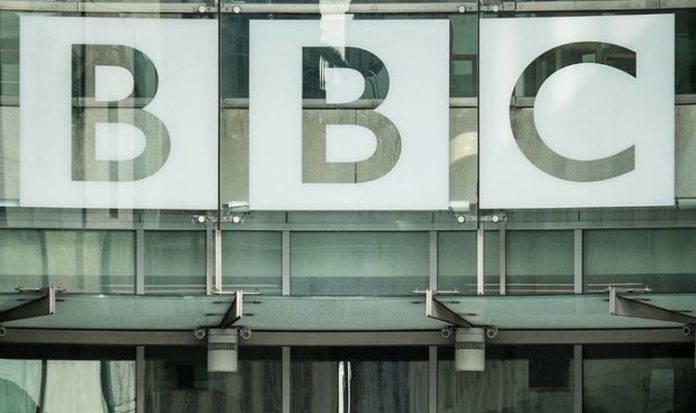A GoFundMe crowdfunding appeal has raised £56,800 from 2,700 donors amid growing anger after the BBC’s rich list was released this week. This included a £1 million pay rise for Radio 2 host Zoe Ball and an extra £195,000 for Question Time presenter Fiona Bruce. The Defund the BBC group says it is an “injustice” people should continue to pay for the licence fee, particularly when the BBC is accused of being biased.
Rebecca Ryan, 43, who was also behind the #StandUp4Brexit campaign, said: “For the last four years the Brexiteers have been portrayed by the BBC as being thick, racist and old.
“It is difficult to explain to people who didn’t support Brexit how it actually feels to be forced to pay for something on fear of imprisonment only to be repeatedly portrayed in that way.”
“It’s a deep, deep injustice,” she told the Times.
A “Defund The BBC” Twitter account was first created in June by 18-year-old James Yucel, which gained 40,000 followers within 48 hours.
Ms Ryan, who runs the day-to-day activities, said the BBC’s coverage of the Black Lives Matter movement was part of the reason to set up the group.
Ms Ryan identified one headline as particularly problematic as it appeared to lean towards the left-wing activists.
The headline said: “27 police officers injured during largely peaceful anti-racism protests”
Defund the BBC says it has three main purposes.
This includes raising awareness of how people can legally cancel their TV licence.
READ MORE: Disaster for BBC as 237,000 families stop paying licence fee
She added: “The same thing happened with StandUp4Brexit.
“I get accused of being an astroturf [fake grassroots] campaign, and there’s some big man behind it.
“It’s quite a misogynist view.
“There was no big man behind StandUp4Brexit and there is no big man behind this.”
The existence of the licence fee itself is guaranteed until 2027.
Defund the BBC has already bought advertising boards and Facebook adverts to raise awareness about the corporation’s spending.
The BBC’s latest annual report revealed that sales of TV licences dropped by 250,000 last year.
A BBC Spokesperson told Express.co.uk: “The licence fee continues to ensure the BBC is an independent, universal broadcaster, committed to serving everyone and to investing in British creativity. It is the agreed method of funding the BBC until at least 2027. There’s always debate about the funding model and we’re happy to do that – but the right time to do that is as part of the next Charter discussions.”







